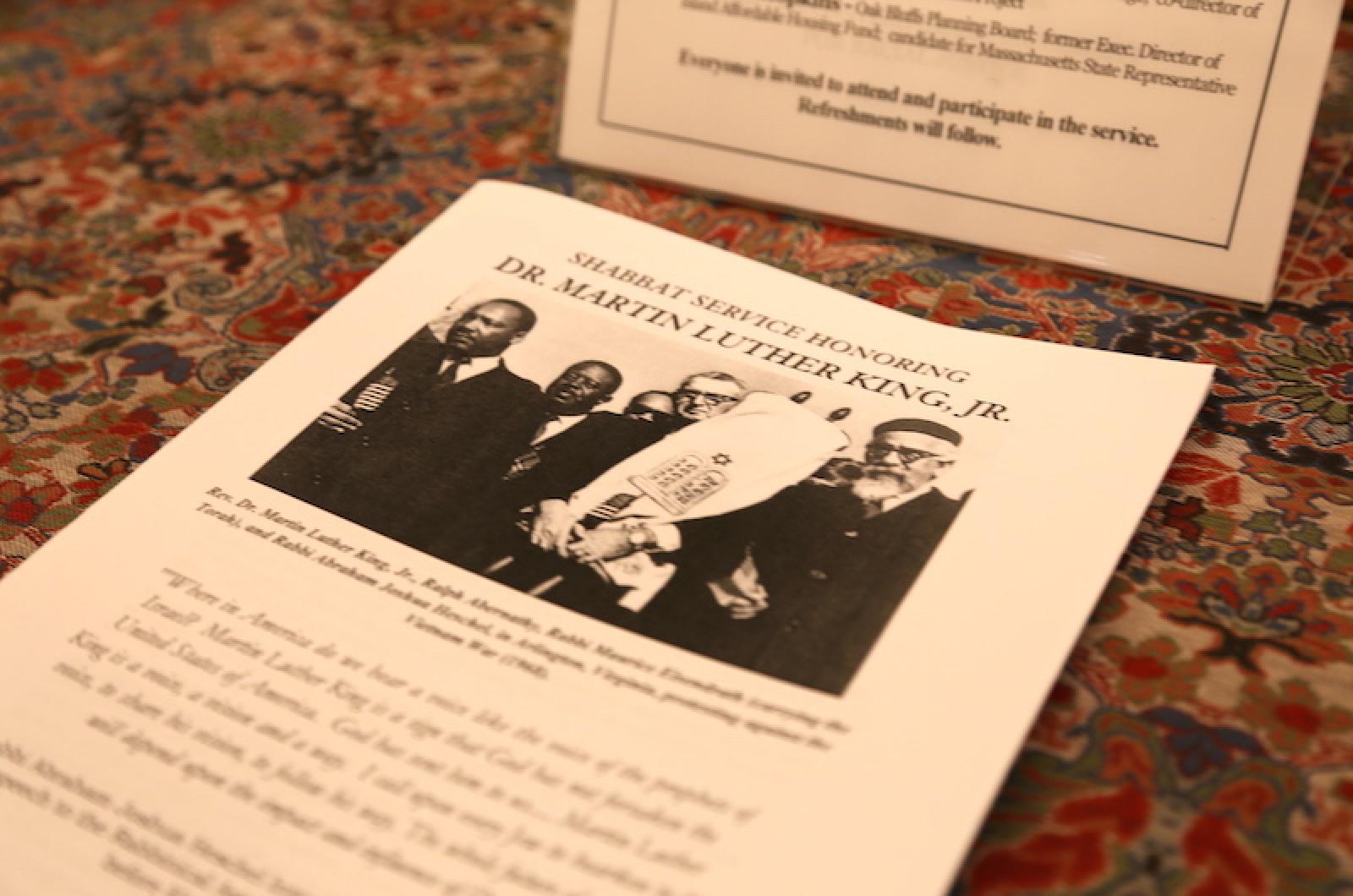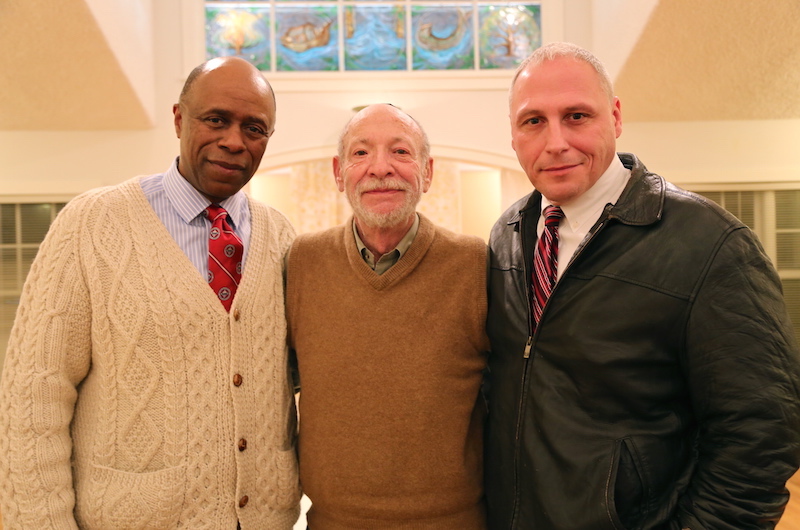On Friday evening, Herb Foster posed a question to a group of Islanders gathered at the Martha’s Vineyard Hebrew Center. “When you were growing up how many of your mothers or fathers or whomever you were living with had people to the house of a different color, a different religion, a different class? Now that you’re an adult how many of you have people to the house of a different color, a different religion, a different class? Don’t answer, just think about it.”
Friday’s Kabbalat service was a celebration of Dr. Martin Luther King Jr.’s birthday, and a chance to discuss the Black Lives Matter movement. The service began with the singing of This Little Light of Mine led by Rabbi Caryn Broitman.
“We’re honoring tonight of course Dr. Martin Luther King and also Rabbi Abraham Joshua Heschel, who was an ally of Dr. King’s,” said Rabbi Broitman. “He said ‘we forfeit the right to pray if we are silent about cruelties committed in our name by the government.’ We don’t always think when we go to our houses of worship that we are engaged in a subversive activity but maybe we should think about that more.”
Rabbi Broitman pointed out that in houses of worship all people are thought to be equal.
After songs, prayers and readings from passages by Ta-Nehisi Coates, Fred Hampton and Dr. King, a panel featuring Oak Bluffs police chief and president of the Martha’s Vineyard NAACP chapter Erik Blake, sociology professor and activist William Gamson and Oak Bluffs resident Ewell Hopkins led a discussion about civil rights, past and present.
“This is an historic moment that fills me with conflicting emotions,” said Dr. Gamson. “On the one hand I feel outrage and sadness of how little progress we have made in combating racism in America during my lifetime. On the other hand, I feel there is renewed hope and the possibility for greater racial justice if we act together to make it happen.”
Dr. Gamson went on to talk about his involvement in the Congress of Racial Equality and his protesting experience in a segregated pre-Brown vs. Board of Education America. Brown vs. Board of Education was the landmark Supreme Court decision that declared in 1954 that schools should be desegregated. The decision sparked the civil rights movement to push for desegregating restaurants and other public institutions.
“It was an exciting decade with a sense of hope and progress as Jim Crow laws crumbled and great black leaders such as Martin Luther King and many others emerged,” he said. “I remember how moved I was at the inauguration of President Obama in 2009. I thought to myself that regardless of how he performs and what he accomplishes in office, this is defining moment that I had never expected to see in my lifetime.”
Chief Blake talked about how he was inspired by a Martin Luther King Day event at the high school earlier in the day which discussed the Black Lives Matter movement, racism and gun violence.
“The basic tenor of the conversation was that we need to love each other more. We need to be open and honest and we need to care,” said Mr. Blake.
He then talked about how to approach racial justice and equality from a law enforcement perspective.
“People follow laws and do what they’re supposed to do because they feel that the people enforcing laws are legitimate and what they are doing is valid. And if you are improperly or disproportionately enforcing laws in a community of color...if you’re constantly having abuse cases, as soon as you lose the trust of your community and they don’t find you legitimate you’re never going to get anywhere and it breaks down,” he said. “They’re a lot of good leaders in law enforcement who are pushing for legitimacy.”
Mr. Hopkins, who is running for state representative, also spoke about the need for love in any movement. “If you’re trying to accomplish a movement or advance legislation or have a stronger relationship with the police you can’t do it if you’re not bringing love to the table, it has to start there,” he said.
The service concluded with the group forming a large circle, holding hands and singing We Shall Overcome, one of the anthems of the civil rights movement.
Dr. King would have celebrated his 87th birthday on Friday.






Comments (2)
Comments
Comment policy »